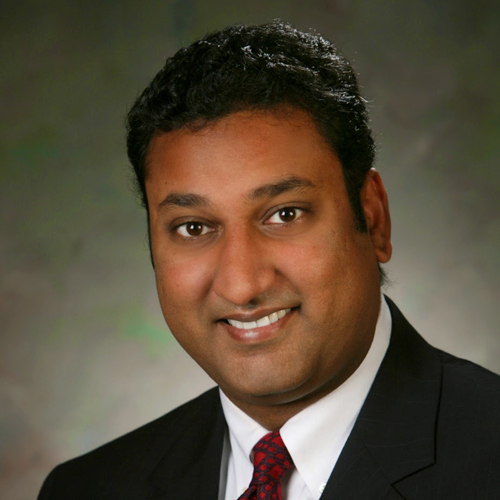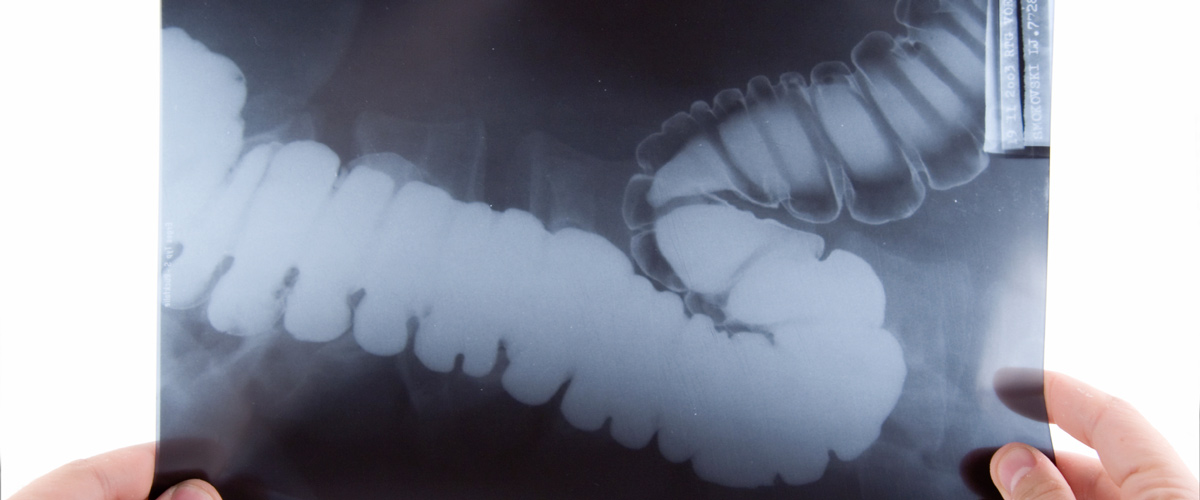There are some words we hope we never hear and ‘you have cancer,’ is definitely at the top of that list. It’s rare that we hear good news on the global fight against cancer, but there are glimmers of hope in the area of colon cancer.
 For starters, colon cancer is not as uncommon as you may have thought. “In 2015 there were 93,000 new cases of colon cancer,” Says minimally invasive surgeon and endoscopist Dr. Sekhar. “The risk of developing the cancer is 1 in 20.” So think of your next spin class and odds are one person in that room is at risk of developing colon cancer.
For starters, colon cancer is not as uncommon as you may have thought. “In 2015 there were 93,000 new cases of colon cancer,” Says minimally invasive surgeon and endoscopist Dr. Sekhar. “The risk of developing the cancer is 1 in 20.” So think of your next spin class and odds are one person in that room is at risk of developing colon cancer.
The good news though, is that colon cancer is detectable and if caught early enough, it is able to be thwarted before spreading to any other part of the body. “With colon cancer, which is unusual compared to other cancers we can remove pre-cancers pretty easily with a simple procedure,” says Dr. Sekhar. “If we find a small polyp on a colonoscopy we can use a snare, which is basically like a metal lasso and put that snare around the stalk of the polyp. Polyp’s look like little small mushrooms. We can actually put a small lasso on the stalk of the mushroom or polyp and remove it without causing any injury to the patient.”
And with the above we introduce that other ugly word—colonoscopy. But before you get too anxious, it’s not necessary for everyone to have one, just those at risk of developing colon cancer. “When a patient comes in we recommend they get their screening either at age 50 (regardless of their medical history) or at the age 10 years before their close relative presented with colon cancer,” says Dr. Sekhar. “So let’s say they had a relative that presented colon cancer at age 45 and they are 35, I would recommend that they go for a colonoscopy because they are at an increased risk. Or, if they’re already over 40 they would also benefit from early screening if they have a relative that has had colon cancer. A lot of times insurance companies cover colonoscopies, so it’s worth checking with them if cost is an issue.”

Clearly there a large number of people who would benefit from a colonoscopy based on that description. If you do need one, there is little need to fear, they are actually not that bad. Not according to Dr. Sekhar anyway. “It has a misconception of being a very difficult and painful procedure, but the reality is quite different,” he says. “Most people, regret that they waited so long because it was so easy. ”
The thing that makes the procedure so easy is the miniaturization of all the instruments involved. “It’s a small camera about the size of a penny and it’s on the end of a flexible tube that has fiberoptic light along the tube. It’s a miracle of miniaturization,” says Dr. Sekhar. “It’s a very well-tolerated procedure, the width of the tube is only about the size of your index finger. It’s not like a huge firehose we’re putting up there. It’s a very thin, manageable, flexible tube. Patients don’t really complain about pain after the procedure. Patients can be mildly bloated, it’s the one situation where it’s perfectly okay to pass as much gas as you want in the room. They also will have no memory of the procedure when they wake up. For them it’s like it never happened.”
Furthermore, while the colonoscopy is taking place, the doctor can simultaneously remove any irregular polyps or growths so long as they are not too large—hence the need for regular screenings. “ When I do the colonoscopy I’m ready and able to remove the polyp as soon as I see it,” says Dr. Sekhar. “I use suction. I can suction it through the scope if it’s small enough— most of the time these are about the size of a pencil eraser. A lot of them that are smaller can come through the tube or through the suction channel of the scope. If they’re larger, I can suction them and hold them at the end of the scope or even put them inside a small net. There’s a lot of miniaturized equipment you can use to get a small polyp out. We then send that to the pathologist who looks at it under a microscope and tells us whether it’s a benign polyp, what stage it’s at etc. It gives us more information for the follow up treatment.”
 Hopefully for most, the procedure will allow doctors to catch potential colon cancer cells before they begin to spread and wreak havoc on the body. There is no cure for colon cancer to date, but like many other conditions there are certain lifestyle choices that can put you at a higher risk. “Taking in a high red meat and high processed meat diet like hot dogs and bacon, can increase the colorectal cancer rate,” says Dr. Nik Sekhar. “Physical inactivity and obesity are also things that increase the risk of colon cancer. ” A healthy lifestyle would be strongly recommended for anyone who has a history of colon cancer in their family. That and the regular screenings obviously.
Hopefully for most, the procedure will allow doctors to catch potential colon cancer cells before they begin to spread and wreak havoc on the body. There is no cure for colon cancer to date, but like many other conditions there are certain lifestyle choices that can put you at a higher risk. “Taking in a high red meat and high processed meat diet like hot dogs and bacon, can increase the colorectal cancer rate,” says Dr. Nik Sekhar. “Physical inactivity and obesity are also things that increase the risk of colon cancer. ” A healthy lifestyle would be strongly recommended for anyone who has a history of colon cancer in their family. That and the regular screenings obviously.
Thankfully “over the past 20 years the death rate from colorectal cancer has been dropping in both men and women and most people believe that that is related to screening,” says Dr. Sekhar. It’s because more people are being offered a screening which is the colonoscopy.”
There are no known cures or trusted methods of prevention for colon cancer, but there are preventative measures you can take just to be on the safe side. “It’s been studied in certain populations that anti-inflammatory compounds like turmeric, can actually decrease the risk of cancer,” says Dr. Sekhar. “I would say to ultimately lower your risk of colon cancer the safest and most proven preventative method is a healthy lifestyle. That means minimizing things like red meat to maybe once a week at most and add early screenings, a healthy vegetable and grain-based diet plus some anti-inflammatory compounds like turmeric.”





Very usefull and informative article Nikhil !
Nice job Dr Sekhar.
A very informative article which the general population needs to read and be informed. It is only the prep for the colonoscopy that may be tedious but necessary for the procedure. The procedure itself is no stress on the patient as you are under anesthesia. Dr. Sekhar, whom I know personally is a very competent surgeon with high integrity.